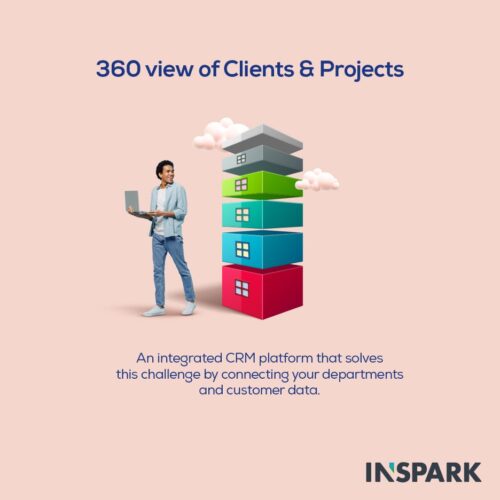
By using Salesforce for a 360 view of clients and projects, real estate companies can streamline their operations, improve collaboration, make data-driven decisions, and deliver exceptional customer experiences.
- Centralized Data Management: Salesforce provides a centralized platform for real estate companies to store and manage client and project data. This eliminates the need for disparate systems and spreadsheets, ensuring data consistency and making it easier to access and analyze information.
- Complete Client Profiles: With Salesforce, real estate companies can create comprehensive client profiles that include contact details, preferences, buying history, interactions, and more. This holistic view allows agents to better understand their clients’ needs, personalize their interactions, and provide tailored services.
- Project Tracking and Management: Salesforce enables real estate companies to track and manage projects throughout their lifecycle. From property listings and showings to negotiations and closings, companies can maintain a clear overview of each project, including key milestones, tasks, and documents.
- Seamless Collaboration: Salesforce facilitates collaboration among team members working on client accounts and projects. Agents, brokers, and other stakeholders can share information, communicate updates, and collaborate in real-time, ensuring everyone is aligned and informed.
- Enhanced Communication: Salesforce provides communication tools, such as Chatter, that enable real estate teams to communicate internally and externally. From discussing client requirements to sharing project updates, these communication features streamline interactions and ensure everyone is on the same page.
- Automated Workflows: Salesforce allows real estate companies to automate repetitive tasks and workflows. This automation eliminates manual effort, increases efficiency, and reduces the risk of errors, ensuring a smoother client and project management process.
- Customizable Dashboards and Reports: Real estate companies can create customized dashboards and reports in Salesforce to gain valuable insights into their clients and projects. These visualizations provide real-time analytics, performance metrics, and trends, empowering companies to make informed decisions and optimize their strategies.
- Integration with Third-Party Tools: Salesforce offers integrations with various third-party tools commonly used in the real estate industry, such as property listing platforms, marketing automation systems, and financial management software. These integrations ensure seamless data flow, eliminating manual data entry and enhancing efficiency.
- Mobile Accessibility: Salesforce’s mobile app enables real estate professionals to access client and project information on the go. Whether meeting clients or visiting properties, agents can view and update data, track progress, and stay connected with their team from any location, maximizing productivity.
- Scalability: Salesforce is highly scalable, accommodating the growth of real estate companies. As the business expands and the client and project portfolio increases, Salesforce can handle the increased data volume and user requirements, supporting long-term growth.
- Data Security and Compliance: Salesforce prioritizes data security and compliance, providing robust measures to protect client and project information. Real estate companies can trust that their sensitive data is stored securely and that the platform meets industry-standard compliance requirements.
- Improved Customer Service: By leveraging Salesforce’s 360-degree view of clients and projects, real estate companies can provide enhanced customer service. Agents have access to comprehensive client information, allowing for personalized interactions, timely follow-ups, and proactive service, ultimately improving client satisfaction and loyalty.
By using Salesforce for a 360 view of clients and projects, real estate companies can streamline their operations, improve collaboration, make data-driven decisions, and deliver exceptional customer experiences.